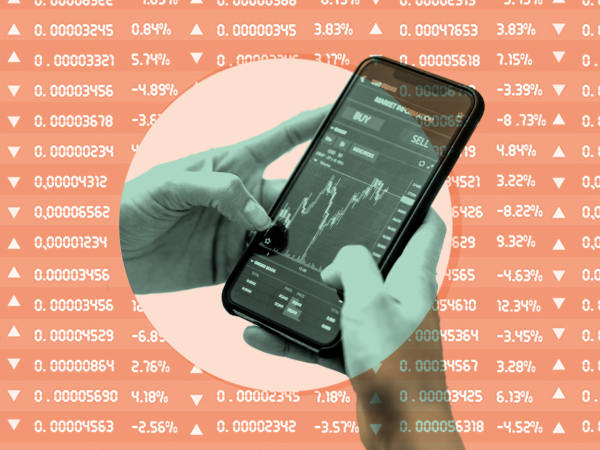Spare a thought for central bankers. Sure, there are good reasons to question the thinking behind a decade-plus of untamed money-printing. But their current in-tray is truly horrid.
“Over the next five years, monetary policymaking is going to be much more challenging than it was in the two decades before the pandemic struck,” said the IMF’s deputy head Gita Gopinath in an interview last month, at the Jackson Hole meeting of central bankers. “Supply shocks are going to be more volatile than we’ve been used to.”
That’s putting it lightly. The Bank of England’s latest forecast for inflation to peak at 13.3 per cent is already seen by many economists as badly behind the curve. Worse, it is far from clear that bank governor Andrew Bailey’s prescription – rounds of interest rate hikes that guarantee an extended recession – will put a dent in spiking global prices for energy and food, the chief source of our woes.
The challenge facing stock-pickers is no less daunting. As with rate-setters, this year has brought about a dawning sense that investors are on their own, without the tools and assumptions that until recently worked well. Even with massive shifts in fiscal policy, the adaptation to what feels like a new economic environment is likely to be painful.
Despite this grim backdrop, there are still investing principles that should work over the long term and might even do well in tough times. One such principle is the endurance of dividend-paying companies with world-leading capital return track records.
All of which serves, in a roundabout way, as the backdrop to a new stock screen I am calling Global Equity Income Compounders – or to give them a snappier acronym (and in an unsubtle nod to Warren Buffett’s favourite auto insurer), Geico stocks.
Although the screen’s methodology selects for qualities that the Berkshire Hathaway boys also admire, it is indebted to another team of stock-pickers: Ian Mortimer and Matthew Page at Guinness Global Investors, who since 2010 have run the firm’s Global Equity Income fund (IE00BVYPNY24).
There are couple of things I especially like about their strategy, which manages $3.25bn (£2.8bn) across all share classes and mandates.
The first is the clarity and transparency of the fund’s stock selection criteria. The Guinness team follows a strict and relatively simple process for whittling down potential investments, which can be found on the fund’s website and which I outline below.
In doing so, I don’t want to imply the fund can be reduced to a formula or downplay the work that has gone into its construction. Mortimer and Page make clear that their screening rules are just one step in a process that involves subjective analysis and proprietary cash flow modelling. On top of this, the skills which active managers bring to the table in times of market crises can be invaluable.
But it is refreshing to find a portfolio whose features can be approximated by a novice armed with a few tools. For those who like to take a DIY approach to equity portfolios, Guinness has provided a robust framework from which to build a diversified portfolio of quality stocks.
Second, the fund has handsomely outperformed the MSCI World Index over the past year and is now ahead of the widely followed global equity benchmark on a five-year basis. That shows to me that the portfolio has both staying power and can deliver in periods of rising market anxiety.
Indeed, this strong recent showing is one reason why my colleague Dave Baxter has added it to our list of top 50 funds which will be released later this week. While the fund lagged its benchmark when markets were surging in 2020 and 2021, Dave notes that its modest gain so far in 2022 suggests the portfolio’s strategy “can act as a defensive holding as well as a source of some yield”.
Yield plus quality
For the Guinness team, yield represents the starting point rather than a bonus. Its philosophy stems from the view that growing dividends offer a “gradual but potent contribution to long-term returns” and serve a useful proxy for well-run companies with disciplined management teams.
In their disclosures, the fund managers cite the inflation-adjusted outperformance of dividend-paying stocks in the US over the past 40 years, and the significant contribution distributions make to total returns in periods of economic pain. In the 1940s and 1970s, for example, Guinness notes that dividends made up 75 per cent of total returns from the S&P 500, well above the long-term trend.
So, should investors simply plump for a geographically diverse, dividend-rich index like the FTSE 100? After all, its current yield of 3.6 per cent is 60 per cent higher than the one on offer from Guinness Global Equity Income, and more than double the aggregate trailing payouts from this year’s Geico shares.
The Guinness team offers two compelling arguments why a high-conviction and equally weighted portfolio of dividend stocks might be a smarter option. First, it spreads the risk of dividend cuts across dozens of companies and sectors. By contrast, just eight companies account for more than 40p of every £1 of UK dividends forecast to be paid in 2022, according to FactSet.
Second, it removes the reliance on the kind of cyclical companies which tend to misallocate capital. Half of the eight companies which make up two-fifths of UK dividends are resources firms, a sector which in the past decade has seen at least two booms and busts. While the Guinness team believes “a commitment to a dividend leaves no room for vanity projects or frivolous uses of shareholders’ capital”, it also acknowledges that high-yielding stocks aren’t always a marker of quality returns.
Consistency is far more important. That’s why Mortimer and Page only look at companies that have generated a return on capital of at least 10 per cent, every year, for the past decade. This removes firms that cannot generate more than the 6 per cent average real cost of capital and which are likely to struggle in certain economic environments – a clique which amounts to 97 per cent of all global listed companies.
The Guinness fund shrinks this pool further, removing firms with a market value below $1bn and a debt-to-equity ratio greater than one. From there, the managers look a bit more closely at valuation, market sentiment and capital budgeting to find companies which can sustainably grow their dividends into the future. The result is around 35 equally weighted stocks across a broad range of industries, countries and sizes.
My Geico stock criteria, which screen the constituents of the MSCI World Index and loosely map the Guinness team’s rules, are as follows:
- Returns test: return on common equity of at least 10 per cent a year for the past decade
- Size test: market capitalisation above $1bn
- Leverage test: total debt must not exceed shareholder equity
- Dividend test: must pay one
- Sentiment test: free cash flow forecast to improve over the next two years
- Capital budgeting test: cash return on capital invested (CROCI) in the top quintile of stocks screened
- Valuation test: current price/earnings ratio no more than 20 per cent above the five-year average
Unsurprisingly, the return on capital test was the toughest to clear, and just 25 companies in the MSCI World passed all seven criteria.
Unlike most screens on these pages, I expect many of the names which made the inaugural set of Geico shares to reappear in a year’s time. In a sense, that is a good thing: the Guinness Global Equity Income fund team like to hold stocks for at least three years, making an annual review a decent point to re-evaluate holdings and either ‘sell’ or ‘add’ stocks according to their pass rate.
Details of the 25 Geico stocks are below, and in much greater depth in the downloadable spreadsheet in the online version of this article.
We’ll revisit them in a year’s time to see if their sterling-denominated performance matches up to either the MSCI World benchmark or the fund on whose criteria they are largely based.
2022 Geico shares
| TIDM | Company Name | Sector | Exchange | Price | MC ($mn) | PE (x) | FCF Yield | FCF Yield (NTM) | FCF Yield (STM) | Div yield | ROCE | 10y Av. ROCE | CROCI |
| AOS-US | A. O. Smith | Producer Manufacturing | New York | $57.4 | 8,871 | 17.7 | 6% | 5% | 6% | 1.2% | 26% | 20% | 28% |
| ACN-US | Accenture | Technology Services | New York | $292.5 | 185,020 | 28.4 | 4% | 4% | 5% | 1.0% | 32% | 49% | 39% |
| CHR-DK | Chr. Hansen | Consumer Non-Durables | Copenhagen | DKK 429 | 7,581 | 32.7 | 2% | 2% | 3% | 1.1% | 16% | 25% | 25% |
| CTAS-US | Cintas | Consumer Services | Nasdaq | $409.7 | 41,457 | 35.2 | 3% | 3% | 4% | 1.0% | 35% | 25% | 22% |
| CGNX-US | Cognex | Electronic Technology | Nasdaq | $42.9 | 7,434 | 29.5 | 4% | 3% | 4% | 0.3% | 21% | 16% | 22% |
| COLO.B-DK | Coloplast | Health Technology | Copenhagen | DKK 828 | 23,614 | 36.8 | 2% | 3% | 3% | 1.9% | 62% | 51% | 37% |
| EMR-US | Emerson Electric | Producer Manufacturing | New York | $83.3 | 49,267 | 15.8 | 6% | 5% | 7% | 2.1% | 25% | 23% | 19% |
| EMSN-CH | EMS-CHEMIE | Process Industries | Zurich | DKK 694 | 16,634 | 29.1 | 2% | 2% | 3% | 2.1% | 32% | 30% | 19% |
| EXPD-US | Expeditors International | Transportation | Nasdaq | $103.0 | 16,845 | 11.4 | 5% | 8% | 6% | 0.9% | 46% | 26% | 24% |
| RMS-FR | Hermes | Consumer Non-Durables | Paris | € 1,313.0 | 137,098 | 47.2 | 2% | 2% | 2% | 0.5% | 29% | 27% | 25% |
| 7741-JP | Hoya | Health Technology | Tokyo | ¥14,395 | 36,982 | 30.8 | 3% | 3% | 4% | 0.8% | 22% | 18% | 21% |
| KNIN-CH | Kuehne & Nagel | Transportation | Zurich | DKK 227 | 27,431 | 9.7 | 8% | 11% | 10% | 3.4% | 72% | 34% | 40% |
| OR-FR | L'Oreal | Consumer Non-Durables | Paris | € 342.6 | 183,672 | 34.1 | 3% | 3% | 3% | 1.2% | 17% | 14% | 18% |
| MC-FR | LVMH | Consumer Non-Durables | Paris | € 661.8 | 330,098 | 25.1 | 5% | 4% | 5% | 1.4% | 28% | 18% | 19% |
| MKTX-US | MarketAxess | Finance | Nasdaq | $244.0 | 9,184 | 38.2 | 3% | 4% | 4% | 0.6% | 26% | 28% | 27% |
| MSFT-US | Microsoft | Technology Services | Nasdaq | $263.0 | 1,961,201 | 27.3 | 3% | 4% | 4% | 1.0% | 47% | 32% | 29% |
| NEM-DE | Nemetschek | Technology Services | Frankfurt | € 59.7 | 6,883 | 42.8 | 3% | 3% | 3% | 0.3% | 29% | 28% | 27% |
| NKE-US | Nike | Consumer Non-Durables | New York | $107.9 | 169,195 | 28.7 | 3% | 4% | 4% | 1.0% | 43% | 33% | 18% |
| ODFL-US | Old Dominion Freight Line | Transportation | Nasdaq | $276.3 | 30,883 | 25.6 | 2% | 3% | 3% | 0.2% | 30% | 21% | 20% |
| RAA-DE | Rational | Producer Manufacturing | Frankfurt | € 540.0 | 6,133 | 47.1 | 2% | 2% | 3% | 0.8% | 22% | 33% | 23% |
| SDR-GB | Schroders | Finance | London | £27.04 | 8,615 | 13.1 | 14% | 23% | 24% | 3.4% | 15% | 15% | 20% |
| SWKS-US | Skyworks Solutions | Electronic Technology | Nasdaq | $99.3 | 15,932 | 12.6 | 7% | 8% | 14% | 1.3% | 32% | 22% | 22% |
| SNA-US | Snap-on | Consumer Durables | New York | $218.3 | 11,626 | 13.7 | 7% | 6% | 8% | 2.4% | 20% | 20% | 26% |
| STJ-GB | St. James's Place | Finance | London | £11.22 | 7,070 | 16.3 | 23% | 36% | 39% | 3.1% | 26% | 18% | 24% |
| 3092-JP | Zozo | Retail Trade | Tokyo | ¥3,135 | 6,765 | 26.3 | 4% | 4% | 5% | 1.8% | 62% | 56% | 51% |
| Source: FactSet, as of 31.8.22. NTM = Next 12 months; STM = Second 12 months (ie, one year from now); ROCE = return on equity ; CROCI = Cash return on capital invested. | |||||||||||||













